Hollywood Called, He Answered
Scott Addison Clay ’98 often wonders about how he made it from Raleigh to Hollywood, where he changed the way movies are marketed. Well, here’s how he did it.
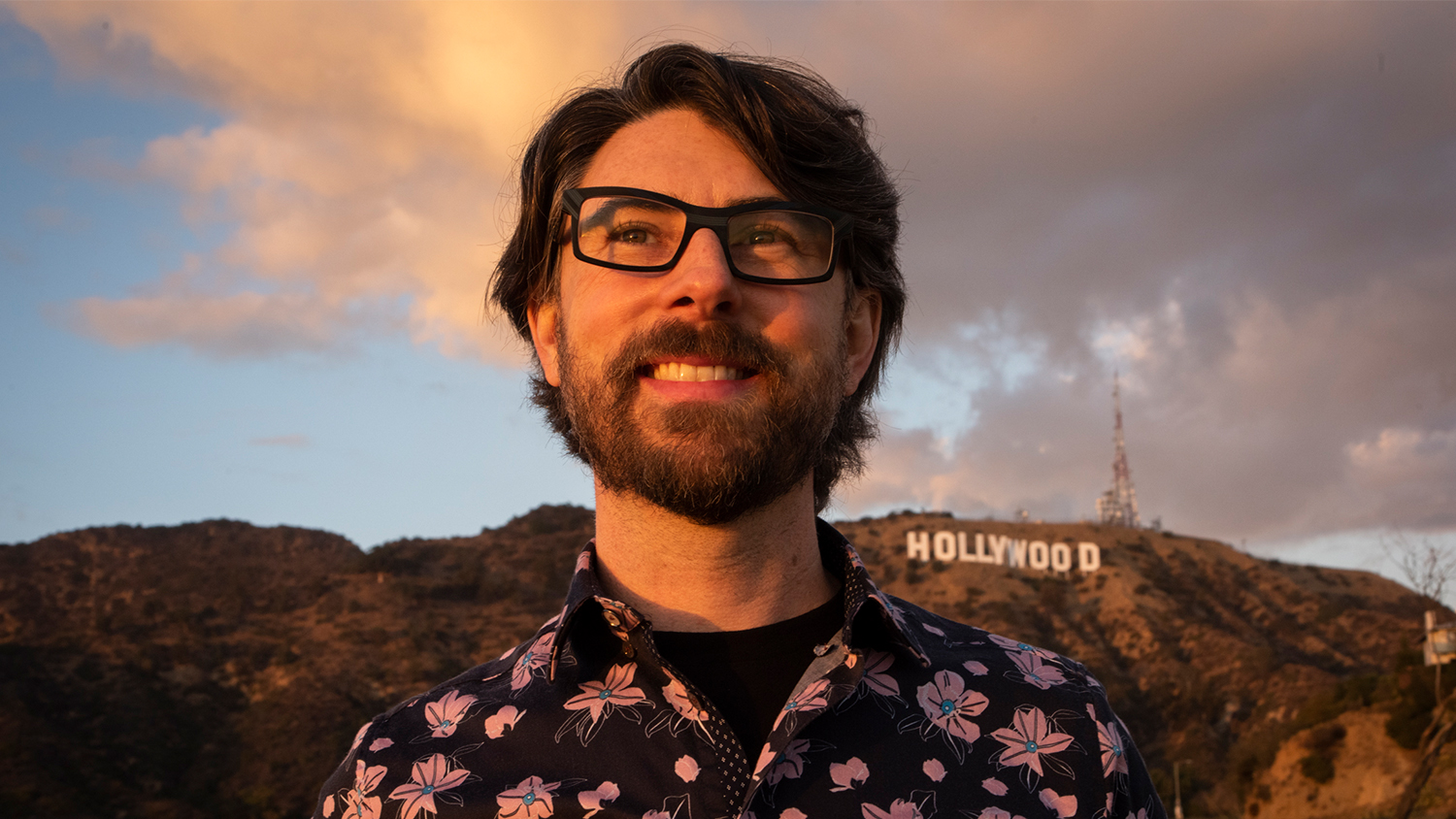
They oughta make a movie about Scott Addison Clay ’98. And then hire him to come up with a plan to promote it.
Because while you may have never heard his name, Clay has made it big in Hollywood. From his office just around the corner from the Hollywood Walk of Fame, Clay has helped transform the way the entertainment industry sells the movies and television shows it churns out.
I had gone to art class. I had done theater. I had done filmmaking. I had done coding. . . . So this was putting all those skills together in a new art form that was emerging on the Internet.
— Scott Addison Clay ’98
As the world became increasingly digital over the last dozen or so years — and anyone with a cellphone could easily access all sorts of entertainment — Hollywood could no longer rely on movie trailers, billboards and press junkets as the primary way to get fans into theaters. “Traditional marketing techniques were becoming less and less effective,” says Jake Zim, who was a digital marketing executive for Sony Pictures and 20th Century Fox before becoming senior vice president of virtual reality at Sony Pictures Entertainment. “People were spending more time on the Internet and on their phones. That’s where conversations were happening.”
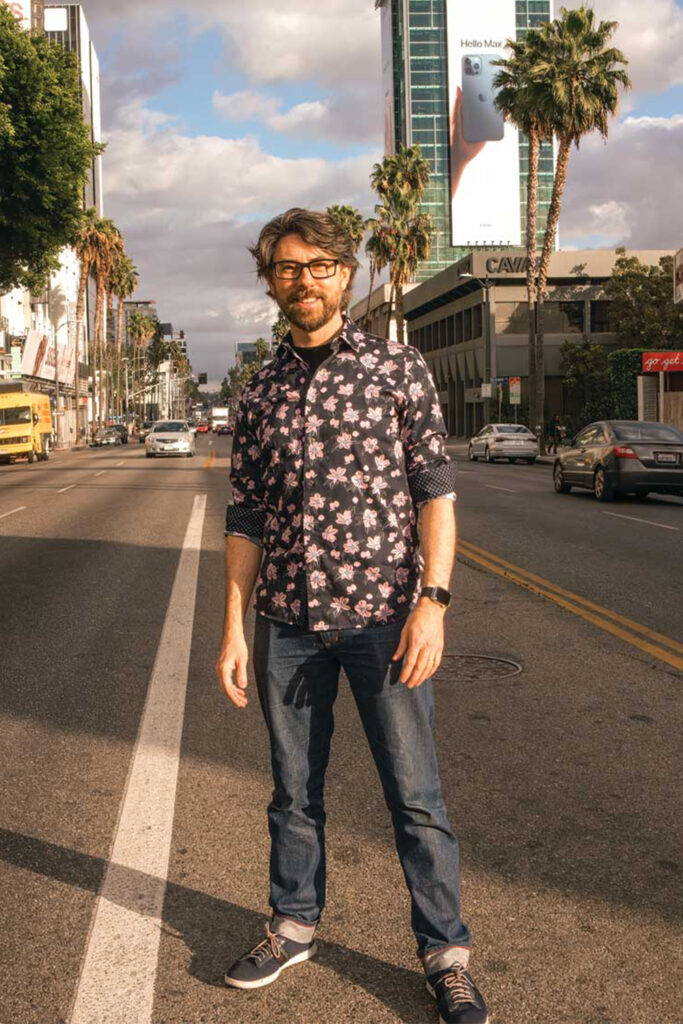
That opened the door for Clay, 46, who had a unique set of technical and creative skills that enabled him to reimagine how Hollywood could use the new digital landscape to sell itself. Clay created web-based games for movie studios that drew Harry Potter fans to rack up “Muggle” points and allowed Godzilla fans to track the movement of the iconic movie monster as it traversed, virtually, around the world. He got stars to film short segments that Clay’s team put together as part of an online trivia challenge. Along with a handful of others, Clay has been on the leading edge of making Hollywood interactive — allowing fans to immerse themselves in games, contests and other activities with the stars and characters they love.
“We knew people were obsessed with Harry Potter, so if we could give them something they could chew on and do constantly, and earn recognition and possibly win some prizes or something, they’re going to go crazy for that,” Clay says. “When you do that, you essentially arm what we call ‘evangelists’ to basically advertise your property for free. And then you hope that their friends see that stuff and go, ‘Oh, I want to see that movie.’”
Taking a Seat
Clay’s story starts with him searching for the proper balance between his abilities with math and technology and his attraction to music, movies and performance. At NC State, that meant being practical and majoring in engineering so that he could get a “real job” after college. But it also meant taking so many electives — from screenwriting to fencing — that he graduated with 72 more credit hours than he needed. He spent one college summer in Illinois, going door-to-door to sell encyclopedias, and a subsequent summer at Oxford, studying Shakespeare and art history. He was the lead singer and rhythm guitarist in a band, performed in several student plays and musicals at Thompson Theatre and worked at WKNC. “I milked it,” Clay says of his four-and-a-half years at NC State.


After earning his degree in environmental engineering, Clay opted against getting that “real job.” Instead, he moved to New York City to pursue acting. He found parts in small theater productions and low-budget independent films that didn’t come close to paying the $625 rent on the one-bedroom, mouse-ridden apartment he shared with three others. He landed a background role as a bar patron on The Sopranos, earning $75, and a slightly larger role as an MIT student in the Oscar-winning film A Beautiful Mind that paid $600. He waited tables and tended bar, and became a jack-of-all-trades for small theater groups and the indie films he worked on with friends. He built websites to market their productions, used spreadsheets to manage their budgets, dabbled in set design, took photos and arranged shooting schedules. He played nine roles in an off-Broadway production of Julius Caesar, built the show’s website and sent out postcards to market the show.
Then Clay was off to Los Angeles, Calif., tagging along with a couple of New York roommates who were making the move. He continued to juggle multiple roles, serving as an associate producer and an actor on the 2006 cult classic, The Beach Party at the Threshold of Hell, and as a writer and actor (he’s passenger #2) on a short film that year called Cats on a Plane — inspired by Snakes on a Plane — that had to be filmed in two days.
And then he was offered a full-time job at a Hollywood marketing agency, with health insurance and other benefits. He was newly married and tired of scraping by, but still struggled to say yes. “I had to go to an office,” he says. “I don’t know if I can do this, like, go sit in a chair.”
But he decided to take a seat. Clay joined the Cimarron Group in 2007 as head of their small digital marketing group, ready to take on the challenge of promoting major movies in new ways. It was, at first, an uphill climb. Hollywood had an ages-old formula for promoting its movies — posters, billboards and trailers, the short videos that featured highlights from the film with the familiar voiceover that promised thrills, laughs and romance. The movie studios were reluctant to change, even if there were signs that a new approach was needed.

For Clay, it was a mix of exhilaration and frustration. For the first time in his life, he was working on major movies. He created websites for movies like The Dark Knight and Twilight, but found that his team was still an afterthought when the agency was hired to promote a movie. But then opportunity struck, in a most unexpected and unusual way, when a friend who was working for Prince called to ask if Clay could do online videos and animation. Or, as the friend put it, did Clay know how “to make things move on the Internet.” When Clay said he did, his friend said, “Okay, okay, so Prince wants to meet you.”
The music superstar was impressed with the work Clay had done on The Dark Knight and Twilight websites, and asked him to create a grandiose, over-the-top website where Prince could interact with his fans, sell his records and promote his concerts, cutting record companies out of the process. The website, lotusflow3r.com, was tied to the release of a three-album set and, Clay says, drew in thousands of fans willing to fork over $77 to be part of Prince’s virtual world. But Prince was soon ready to move on to other challenges. “I just kind of feel like he lost interest,” Clay says. “He was like, ‘I did this cool big splash. I made a lot of money.’”
Clay’s work with Prince ended after about eight months, almost as suddenly as it began, but not before the musician gave Clay a chunk of money from the initial proceeds of the still nascent web-site. It was enough, Clay says, to give him some financial cushion to start his own marketing agency. Some of the movie studios had approached him about working for them, but Clay thought the time had come to branch out on his own.
“I didn’t enjoy the politics of a large organization,” he says. “That was not fun. I wanted to stay small and nimble.”
Viewer Participation Advised
In 2010, Clay launched Addison Interactive with four employees working in a small building behind his house. He had commitments from executives at Fox and Warner Brothers to work with his new firm, doing 35 projects for Fox in his first couple of years.
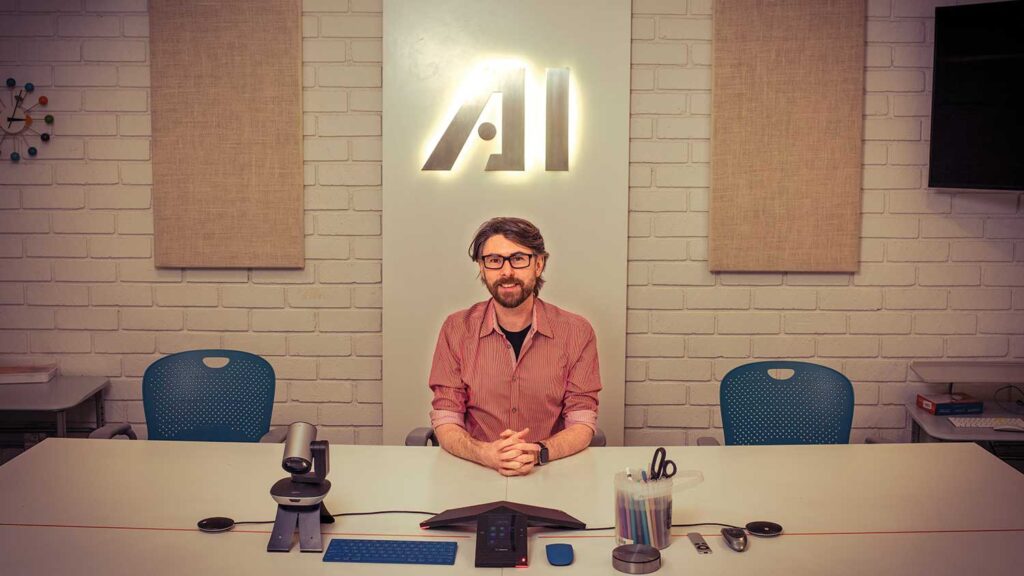
One of the first big projects for the new agency was the website for the last two movies in the Harry Potter series. That was the one, Clay says, that put the agency on the map. For HarryPotter.com, the agency created a game where fans could earn points — the more they played, the higher their rankings were on a Muggles board.
More projects followed. For the movie Pacific Rim: Uprising, the firm created a virtual military recruiting program, where fans could complete training to earn badges. For Godzilla: King of the Monsters, they created an online globe where fans could track the movement of Godzilla and other monsters around the world. The company moved into offices in the heart of Hollywood and grew to 20 employees (it currently has 16 employees) as its reputation for doing cutting-edge work spread across the industry.
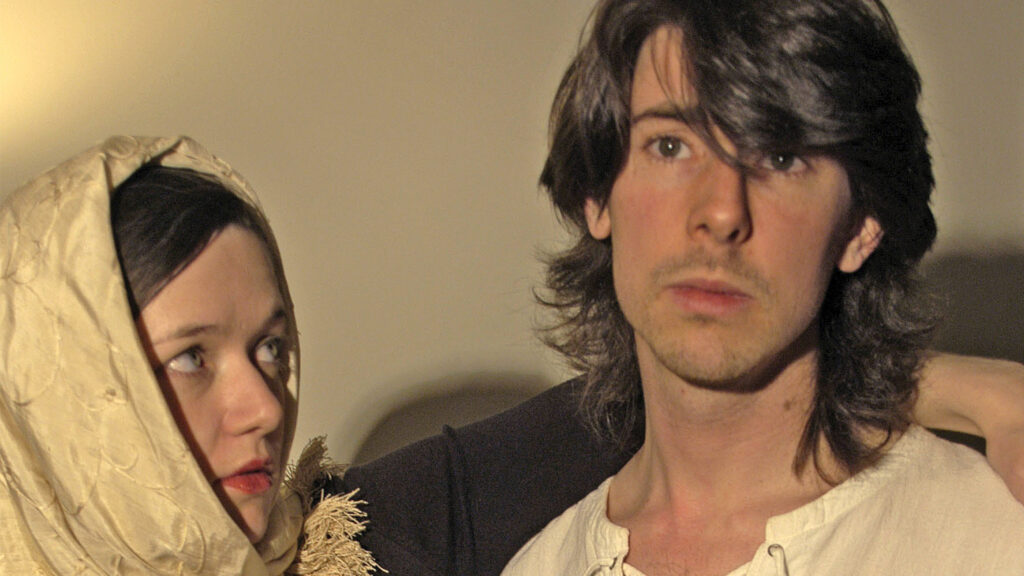
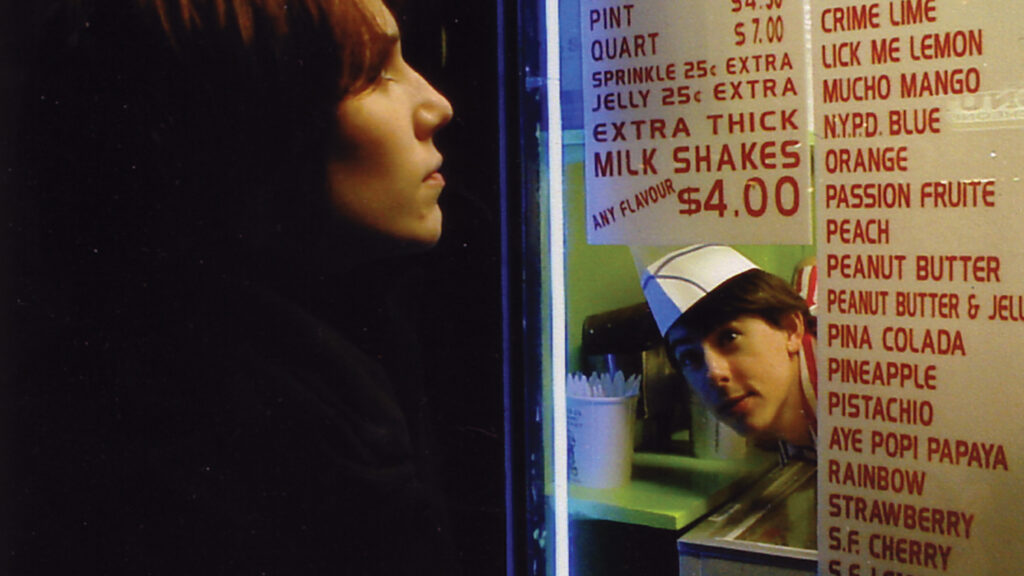
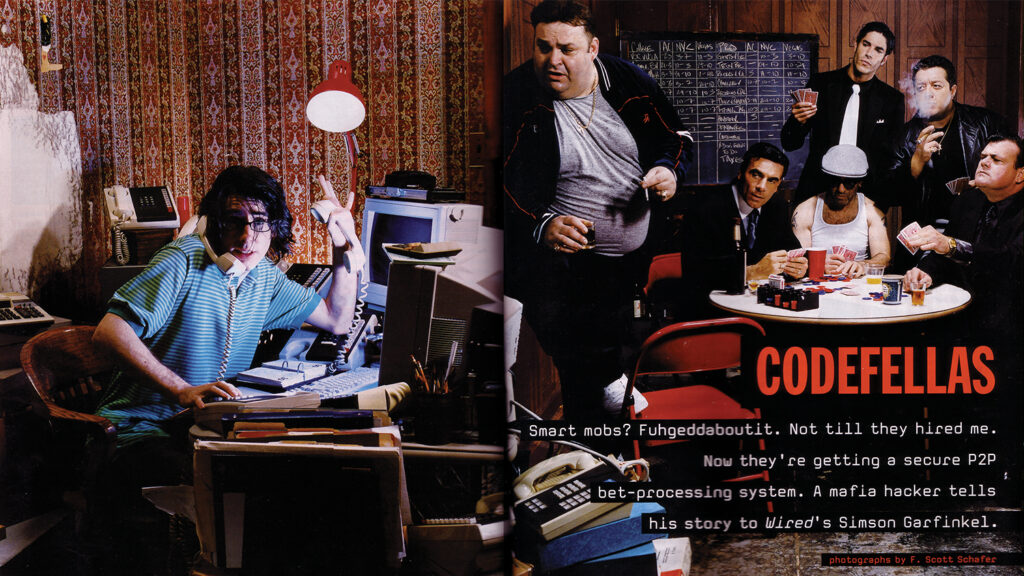
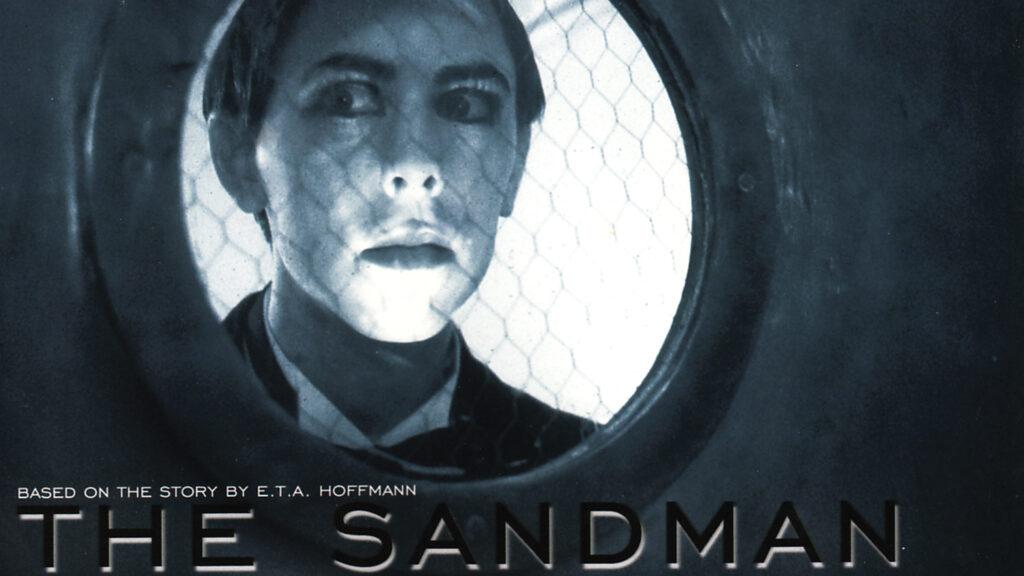
“I was combining all these things that I had disparately done before,” Clay says. “I had gone to art class. I had done theater. I had done filmmaking. I had done coding. I had done engineering and performance and even sales. I sold books door-to-door and met a lot of people and understood their problems. So this was putting all those skills together in a new art form that was emerging on the Internet.”
Zim, the Sony executive, recalls a project he worked on with Clay for a 2012 movie called Looper. It starred Bruce Willis, Joseph Gordon-Levitt (or “Jogo,” as Clay calls him) and Emily Blunt as mercenaries who could go back in time — but only once — to carry out a contract killing. Zim says it was a difficult storyline to explain, but that Addison Interactive developed a bike chase game that fans could play from home with a webcam. “The movie was a big hit, and the game was one of the first digital games that you could play,” he says. “Everything in marketing gets repeated and duplicated, but when you do it first, you’re really a trailblazer.”
Everything in marketing gets repeated and duplicated, but when you do it first, you’re really a trailblazer.
— Jake Zim, senior vice president of virtual reality at Sony Pictures Entertainment
Matt Gilhooley, a veteran of digital marketing in Hollywood who now works as director of digital marketing for the Call of Duty series of video games produced by Activision, says Addison Interactive had a competitive advantage over many of the other entertainment marketing agencies. “There’s a lot of partners that can make something beautiful,” he says. “Scott’s company always brought the technology layer.”
And then COVID-19 hit, forcing Clay to reinvent his company.
“You May Ask Yourself”
As the pandemic took hold and movie theaters were forced to shut down, Hollywood struggled to find ways to connect with its audience. Some movies were released on streaming services like Netflix while others were put on hold. Production on new movies and television shows stopped.
That also meant there was much less to promote. With more agencies jumping on digital marketing, the company’s share of the pie had already begun to dwindle before COVID hit. So Clay tapped into his computer coding and engineering skills to create a way that Hollywood could engage its fans virtually.
While people around the world learned how to Zoom, Clay wanted to build something more versatile and interactive. Working with other partners, including Vaco, a Raleigh-based technology firm, Addison Interactive developed an online system called Eventuall, allowing users to watch videos, chat with different groups of people and peek behind the proverbial red carpet — all in real time. For a movie premiere, for example, fans can watch the film and then move their avatar into a virtual lounge to join the film’s director and stars to talk about it, moving from different small chat groups (or “discussion dens”) to hear from people who worked on the film. Instead of traveling the world to promote movies, stars can now sit in their homes and do virtual question-and-answer sessions with entertainment reporters from all over the globe. His projects include virtual screenings, premieres and parties for various Netflix shows, media interviews with the actors on CW shows such as Walker, Superman & Lois, and Kung Fu, and virtual premieres for movies such as Save Yourselves! and The Secrets We Keep.
“We can create a bespoke, exclusive, Hollywood-style experience,” Clay says. “People are realizing that you can reach everybody wherever they are, they don’t have to come to a room in Hollywood.”
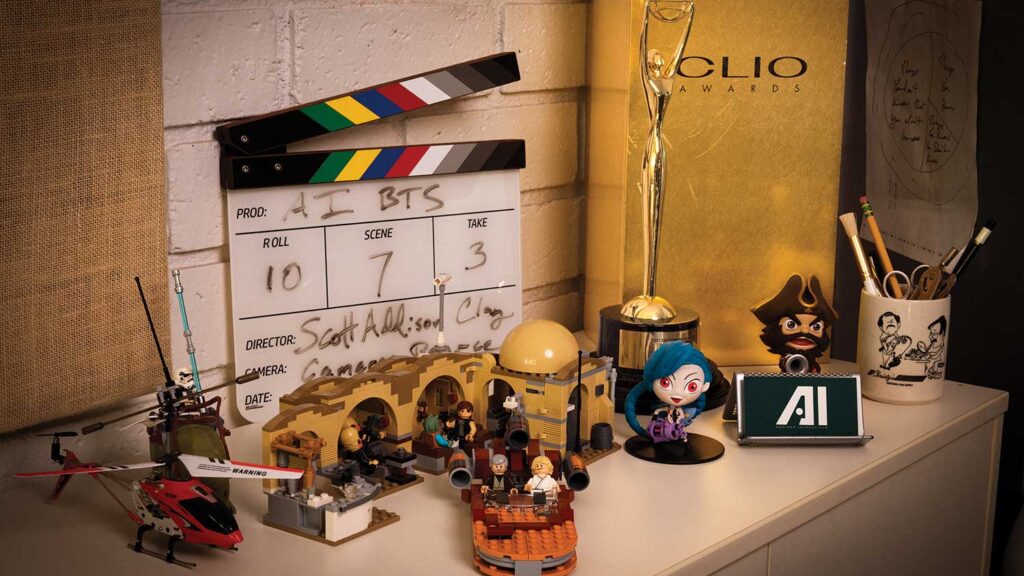
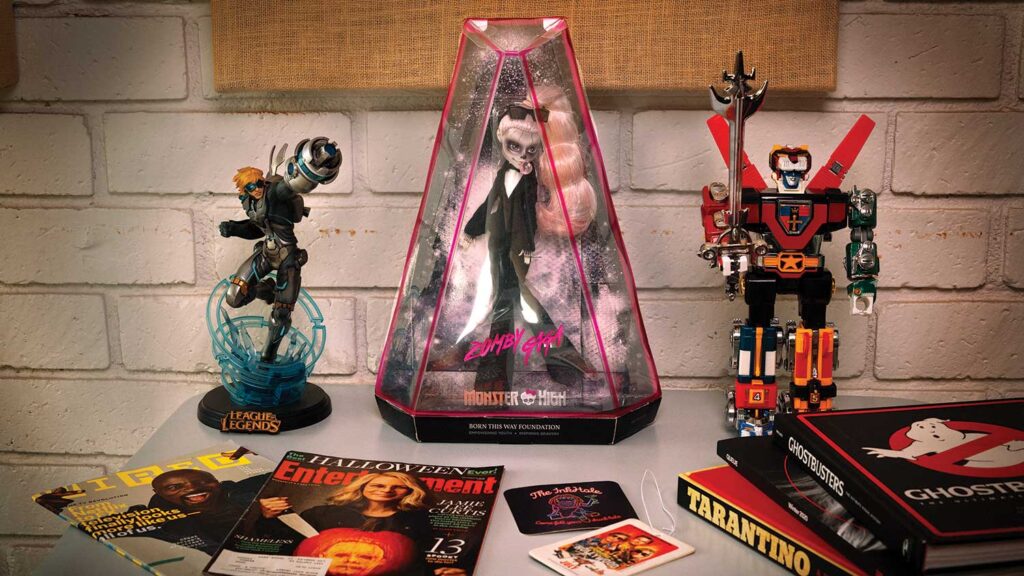
Clay expects virtual events to continue to be a substantial part of his business as movies return and the demand for new digital marketing campaigns rises. But while some of the projects may change, Clay hopes his company’s primary mission stays the same. “We want to have fun and not take ourselves too seriously,” he says. “Making things that also make the world more fun and enjoyable is something that I always harp on. We make entertainment marketing entertaining.”
As he looks back on his journey, he recalls lyrics from a song by the Talking Heads. “I sometimes ask, how did I get here,” he says. But then he thinks back to his role as Billy Crocker in the NC State production of Anything Goes, to selling encyclopedias in Illinois, to creating websites for stars like Arnold Schwarzenegger, to writing stupid jokes about cats and taking a dart to the eye as Blowgun Man in The Beach Party at the Threshold of Hell.
“So, ultimately,” he says, “being a jack-of-all trades who’s interested in creativity and technology, all that stuff has served me well.”
- Categories:


